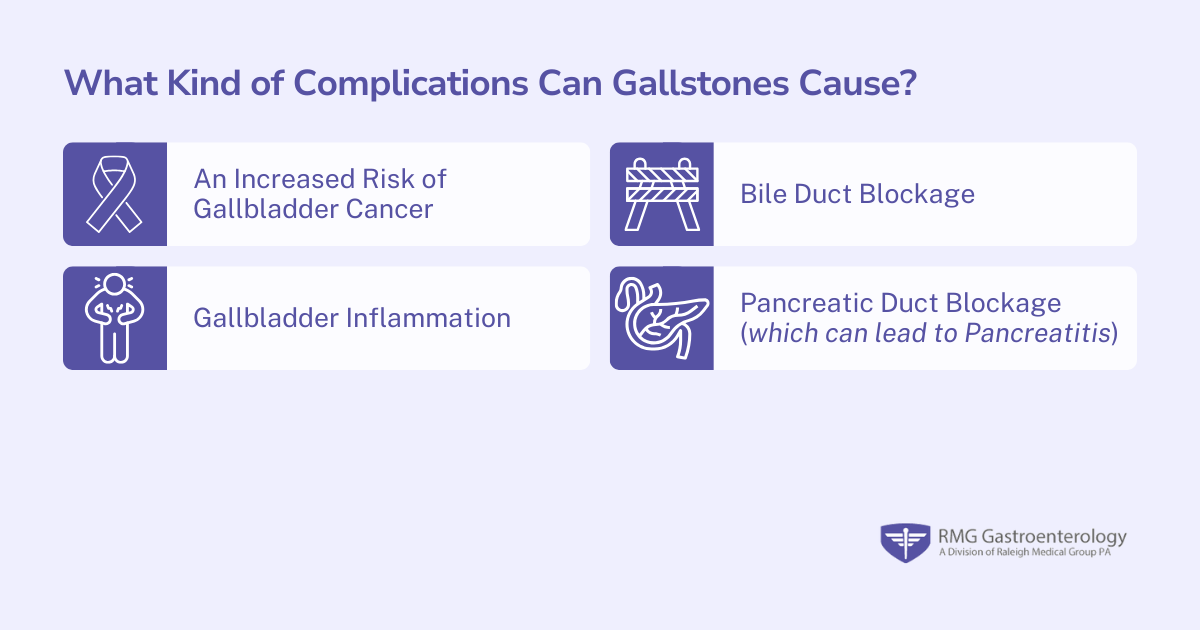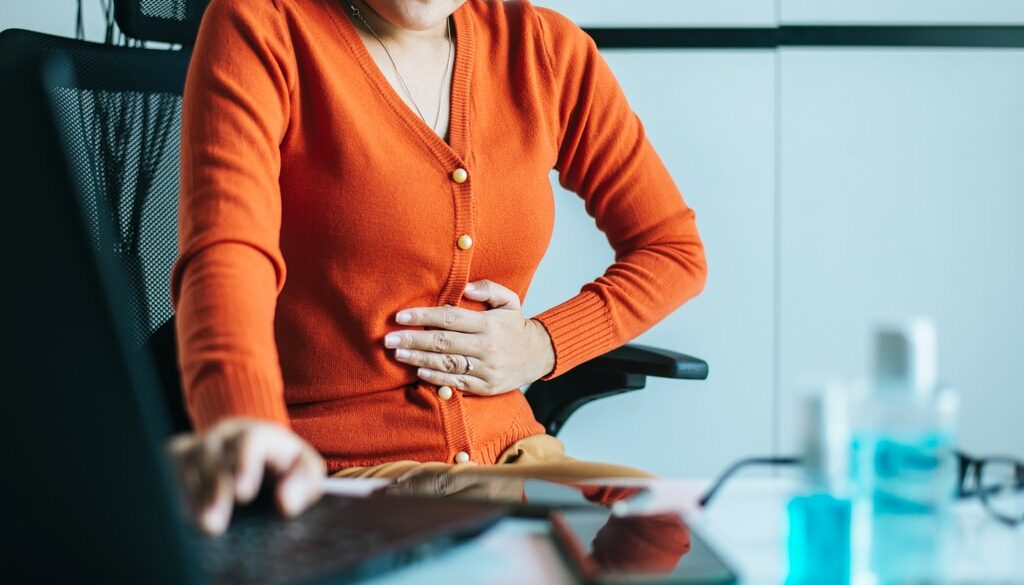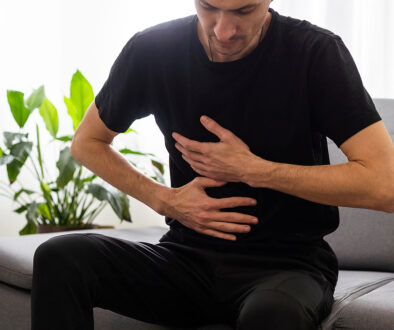What Are the Main Causes and Symptoms of Gallstones?
Abdominal pain is your body’s signal that something isn’t right. There could be a host of problems causing your discomfort, but most importantly, this pain is something you should take seriously.
Severe abdominal pain is one of many symptoms of gallstones, and while many Americans have gallstones that are small and pose no problems, others can cause serious complications if left untreated.
Before we get into the causes and symptoms of gallstones, we’ll take a quick look at what they are as well as the purpose of the gallbladder.
What Does the Gallbladder Do?
The gallbladder is located just under your liver. This small organ stores and releases bile, which helps your digestive system process and break down fats.
What Are Gallstones?
When bile material crystalizes, it can form “stones” that can block bile ducts. These can range in size from as small as a grain of sand to a golf ball.
Often, gallstones are harmless. In fact, many people may even be unaware that they have gallstones.
However, gallstones can cause inflammation and pain—and in certain cases, the symptoms of gallstones can be a warning that serious complications may be on the horizon. When you’re experiencing signs of gallstones, it’s important to schedule an appointment with one of our gastroenterologists in Raleigh so we can help you.
We’ll take a look at the signs of gallstones and the symptoms of gallstones a bit later, but first, let’s examine the factors that cause gallstones to form.
Three Main Factors in Gallstone Formation
In actuality, research is still ongoing into what specifically causes gallstones to form and why some people may be more prone to developing them than others. However, doctors think that the following factors are major contributors to gallstone formation:
Too Much Cholesterol in Your Bile
Bile is a digestive fluid that breaks down fats into fatty acids. These acids are then taken down the digestive tract and, eventually, out of the body .
Normally, bile easily dissolves any cholesterol that your liver excretes. However, if you have high cholesterol levels, your bile may become “overwhelmed.” Therefore, the excess cholesterol may turn into crystals. These crystals can eventually turn into stones.
Too Much Bilirubin In Your Bile
This is another important chemical. It is produced when your body breaks down red blood cells. If your liver is making too much bilirubin, it can contribute to gallstones.
Your liver may make too much bilirubin if you have diseases such as cirrhosis or blood disorders.
Inability of Your Gallbladder to Properly Empty
When your gallbladder doesn’t empty completely, your bile will become more concentrated. This can also occur if your gallbladder doesn’t empty often enough. Researchers believe this can contribute to the formation of gallstones.
What Are the Main Symptoms of Gallstones?
If your gallstones are small, you may not exhibit any signs of gallstones. In fact, some people have gallstones and may not even know it because they have no symptoms of gallstones! Gallstones cause problems when they become large or when they block the flow of bile—which in turn affects your gallbladder and pancreas.
If this occurs, you may experience symptoms of gallstones such as:
- Abdominal pain, typically in the upper right and upper mid abdomen–this is one of the main symptoms of gallstones
- Abdominal pain that radiates to the shoulder or back
- Pain after eating high fat or greasy foods
- Jaundice
- Fever
- Chills
- Nausea
- Vomiting
- Light brown urine
- Light-colored bowel movements
How Can Gallstones Impact Other Aspects of Your Health?

First, those who have a long history of gallstones are at a higher risk of developing cancer of the gallbladder. Other complications include:
- Cholecystitis, or gallbladder inflammation. This causes extreme pain and fever.
- Bile duct blockage, which causes severe pain, bile duct infection and jaundice.
Pancreatic duct blockage, where the tube that connects the pancreas and the bile duct is affected. This can lead to pancreatitis, with severe, consistent abdominal pain. Pancreatitis typically requires hospitalization.
How Are Gallstones Treated?
These can be treated through medication. However, it can take months to years for medication to be fully effective. In addition, if you stop taking the medication, new gallstones will form and the symptoms of gallstones will return. This is why medications aren’t used often to treat gallstones.
Surgically removing the gallbladder is the most effective way of treating gallstones and ensuring that no new ones will form.
Can You Live Without Your Gallbladder?
Yes, you can. The gallbladder is not essential to your digestive process. When your gallbladder is removed, bile flows directly from your liver into your digestive tract.
Avoid the Pain and Complications of Gallstones With the Help of RMG Gastroenterologists
Abdominal pain is a cue that something is not right. If the trouble is within your gallbladder, it’s important to receive experienced, expert treatment as soon as possible to ensure you aren’t at risk for more serious complications later.
Our gastroenterologists in Raleigh focus on liver and digestive diseases. We serve as a convenient location for all advanced and routine procedures including ERCP and endoscopic ultrasounds.
With several offices located throughout Wake and Johnston counties, we provide screenings that are cost-effective and convenient. With two female gastroenterologists on staff, we are able to ensure that any gender-related gastrointestinal disorders are compassionately and completely addressed.
If you’ve exhibited any of the symptoms listed above or you believe you may have gallstones, please contact us for an appointment.
We would consider it a privilege to care for you.


